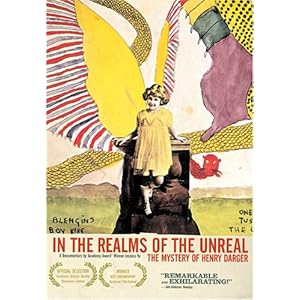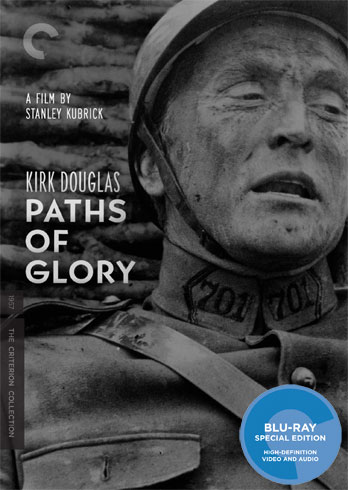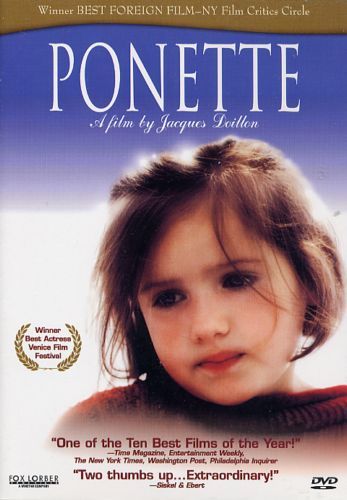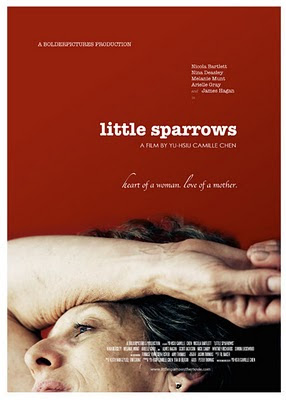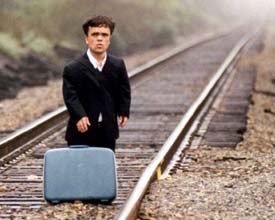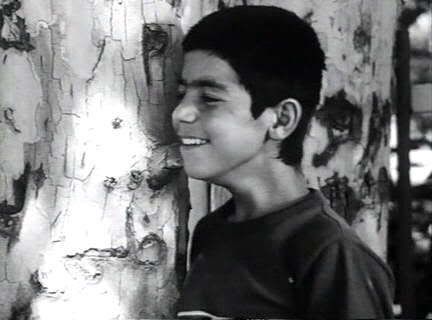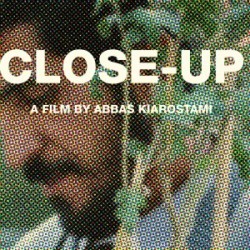The Greatest Movie Ever Sold. (2011) Morgan Spurlock
This idea is sheer genius.
Morgan Spurlock made a name for himself by simple ideas executed with his magnetic humor and panache, but not without heart. In Super-Size Me (2004) it was, "What would happen if I ate three full meals a day -- at McDonald's -- for a month? How would that affect my health and my family life?" In Where in the World is Osama Bin Laden (2008) it was, "Where in the world IS Osama Bin Laden? And who would I meet if I flew to the other side of the world to find him myself?" His latest, The Greatest Movie Ever Sold, is Spurlock saying, "I'm an indie documentary filmmaker: How can I get funding for my art?"
Simple ideas, fun editing technique and Spurlock's own personality -- a mixture of charisma, charm, and bad-boy antics that the good-girls love -- make his films altogether enjoyable, but I think The Greatest Movie Ever Sold was the most fun I've had at a cinema this year.
Spurlock has created a doc inside of a doc about product placement in (where else?) the movies. He accomplishes this by completely selling out. Hounding company after company to finance his feature, he gets the cash he needs by placing their products in the film itself. As such, he is held by contractual obligations to only endorse the products from the companies in his film -- he can only drink Pom Wonderful ("The Greatest Drink Ever Made!"), he can only wear Old Navy ("The Greatest Clothes Ever Worn!"), he can only fly jetBlue ("The Greatest Airline in the World!") and he can only stay in Hyatt hotels ("The Greatest Hotel Ever Visited!"). My personal favorite was the choice for the film's music, "The Greatest Song I Ever Heard," played by OK Go, "The Greatest Band in the World!"
What we end up with is a transparent and honest doc about money and marketing, and how the very nature of writing and creating is changed by corporations who bypass the artist for the exposure of their product. The film is laugh out loud hilarious and almost unconventional in its transparency, especially after last year's I'm Still Here, Catfish, and Exit Through the Gift Shop -- documentaries in which you didn't know where real-life truth was separated from fictional reenactment or all out lie -- The Greatest Movie Ever Sold is the polar opposite of those "docs," so utterly real that it gets eaten up and altered by its own reality. Spurlock, like many filmmakers before him, realizes half way through the production that he is no longer running the show, but the products now are. This is unanticipated, but of course appreciated in the context of this film.
And he didn't even mention McDonalds. (Somewhat disappointing, I would have loved to see him have the Big Mac as "The Greatest Hamburger Ever Sold!")
As an aside, the movie provided two buzzwords that I know I'll be using in the near future: Faction, a cross between fact and fiction (a word which advertisers must love) and Docbuster, a documentary blockbuster, of which there probably aren't many. (The last time I remember being in a packed house for a documentary feature -- festivals aside -- was for Bowling For Columbine back in 2003.)
I really enjoy Spurlock's onscreen demeanor. His points are often simple, but still worth saying, and the way he presents a topic is highly entertaining. I drove eight miles home on a highway after the viewing and must have seen twenty billboards, at least, in those eight miles. I don't remember seeing them on the same trip before I saw the film.
The Other Side of Immigration. (2009) Roy Germano
Roy Germanos' 55 minute freelance exposé packs more in its short running time than some docs do in twice its length.
Efficient, educational and illuminating, The Other Side of Immigration is too short for mainstream distribution but has been on iTunes for a few months and recently became available for streaming via Netflix. An official selection at university events and many renown film festivals, the doc has already won several awards, including the 2011 American Library Association Notable Video Award. (I found my DVD copy at the KDL Library in Grandville, Michigan. Thanks, Grandville!)
Interviewing hundreds of Mexicans, specifically those on the northern border seasonally migrating to the U.S. for work, and members of the families who miss them, the doc relays the plight of the illegal worker who wants to keep food on the plate in his home country. He's working in U.S. wealth in order to keep his family back home afloat.
When some in the U.S. encounter (or more likely hear about) illegals without taking time to understand their background, it leads to misconceptions about the nature of these hard, driven workers. All too often we get selfish about protecting our borders without fully thinking through the nature of the migrating issue. Those most seemingly concerned about the border issue are really only silently enforcing their white prejudice.
The typical migrant's desire is to work seasonally and then return home. It doesn't feel to the migrant like a choice, but rather, a duty. If you think it's hard to find a job in the U.S., try finding a job in Mexico. When Mexicans can't find work at home, they come here and work hard at jobs Americans refuse to do. In the process they also put up with a lot of uneducated bigotry about who they are and what they do. They're seen as a threat, but its more threatening to the one doing the migrating than to any citizen observing from their safety at home. The migrant has to pay thousands of dollars just to be smuggled across the border, and there have been many who haven't even made it that far.
The film's website does a fine job explaining its importance in education, but I can sum up my own reasons for seeing it, too: it sheds light on a subject Americans have created lot of fear around but perhaps do not fully understand. Hence, the importance of education. Hence, the importance of the film.
The question becomes: do we want to understand the problems our neighbors to the south face? If we recognize a serious issue between "us" and "them", do we then decide that we're as globally minded as our nightly news suggests, or are we only globally minded when it benefits us, like when we use other countries for outsourcing jobs and fight terrorists in far away lands? We post band-aid guards to patrol our borders unless we're shipping in food from other countries. We are a globally minded nation when it comes to sucking oil out of another country's ground, or selling our products across the ocean. I am ashamed of the way my country is so "globally minded."
But there's hope at the end of The Other Side of Immigration. The case is made that Visas are a potential answer to current border "solutions" that have never worked to solve anything anyway. It's an interesting take, one that I'd like to learn more about, and I'd gladly support a politician who had the guts to put this on his agenda.
In the Realms of the Unreal. (2004) Jessica Yu
"Am I a real enemy of the cross, or a very sorry saint?" questions the voice of Henry Darger, a pure art practitioner who died in 1973 as a poor old janitor shut away from the world in an apartment in Chicago. An outsider from birth who grew to excel in Outsider Art, Henry's work was posthumously discovered by the same people he distanced himself from when he was alive. He kept completely to himself in his later years, the recluse only breaking his silence to come out of the house and work as the custodian at a local Catholic church.
He didn't talk to anyone, but all of the residents in his apartment complex have memories of the conversations that were held in his room behind closed doors. It sounded like many people were in that lonely place, adults and kids alike. The truth is that no one was there but Henry, who spoke in voices to himself as he whittled away at his craft.
His craft is front and center in Jessica Yu's In The Realms of The Unreal, the title of the film based on the title of Henry's 15 volume book, suggested to be the world's largest novel approaching over 15,000 pages. In those pages Henry's mind is on display as he imagines a story about the Vivain girls, seven little princesses and their adventures on an alternate Earth that orbits a larger planet of spiritual beings. Like Lewis and Narnia, Darger's fairytale land has a name, and of course this is the "Realms of the Unreal."
Henry, a declared schizophrenic and an institutionalized child orphan, attended Mass every day by the time he was older and working on the novel. His work is a reflection, but fictionalized in story book format, of what he went through early in life. Thousands of pages of journal entries, stories, hundreds of paintings (many over ten feet long) were created by him, the volume of work amazing even before you consider the book. All of this work is fascinated by the divide between religion and amorality, sanity and insanity, obedience and lashing out, innocence and domination. He had an odd relationship with a God who was ever present in his stories, a loving but stern Catholic-looking dictator God whom he felt at ease to question regarding his life's lot.
Yu's doc must have no doubt been a hard one to make. Unlike the similar and more recent Marwencol, where the artist is still alive and can be interviewed, Darger's story is built from only three pictures of himself and the self-taught art brut he left behind. His story is also relayed from neighbors who had to put things together long after his death. They might have known he was seriously strange when he was living, but after his death and all that was found they had to consider the puzzle in a different light, they had to put the pieces back in place with new information.
Darger's story isn't told without some discrepancies here and there, but it paints a picture of an isolated man, abandoned to his own sense of design, simultaneously lashing out at and loving a hard to fathom God, and like his Creator, alone in the creating process. Henry picked up on creation where God left off.
He didn't talk to anyone, but all of the residents in his apartment complex have memories of the conversations that were held in his room behind closed doors. It sounded like many people were in that lonely place, adults and kids alike. The truth is that no one was there but Henry, who spoke in voices to himself as he whittled away at his craft.
His craft is front and center in Jessica Yu's In The Realms of The Unreal, the title of the film based on the title of Henry's 15 volume book, suggested to be the world's largest novel approaching over 15,000 pages. In those pages Henry's mind is on display as he imagines a story about the Vivain girls, seven little princesses and their adventures on an alternate Earth that orbits a larger planet of spiritual beings. Like Lewis and Narnia, Darger's fairytale land has a name, and of course this is the "Realms of the Unreal."
Henry, a declared schizophrenic and an institutionalized child orphan, attended Mass every day by the time he was older and working on the novel. His work is a reflection, but fictionalized in story book format, of what he went through early in life. Thousands of pages of journal entries, stories, hundreds of paintings (many over ten feet long) were created by him, the volume of work amazing even before you consider the book. All of this work is fascinated by the divide between religion and amorality, sanity and insanity, obedience and lashing out, innocence and domination. He had an odd relationship with a God who was ever present in his stories, a loving but stern Catholic-looking dictator God whom he felt at ease to question regarding his life's lot.
Yu's doc must have no doubt been a hard one to make. Unlike the similar and more recent Marwencol, where the artist is still alive and can be interviewed, Darger's story is built from only three pictures of himself and the self-taught art brut he left behind. His story is also relayed from neighbors who had to put things together long after his death. They might have known he was seriously strange when he was living, but after his death and all that was found they had to consider the puzzle in a different light, they had to put the pieces back in place with new information.
Darger's story isn't told without some discrepancies here and there, but it paints a picture of an isolated man, abandoned to his own sense of design, simultaneously lashing out at and loving a hard to fathom God, and like his Creator, alone in the creating process. Henry picked up on creation where God left off.
The Devil and Daniel Johnston. (2005) Jeff Feuerzeig
The Devil and Daniel Johnston feels like a first cousin to In The Realms of the Unreal (and the recent Marwencol, too) in its depiction of strango weirdo "outsider" art. Not that Johnston can be classified "outsider" the same way someone like Henry Darger can, because his underground success in the 80s and the fact that he works around the world in some fashion today puts him on the inside, or at least not fully outside, even though he's clearly not your average Joe. But his thinking, the way that he creates, the ideas that are constantly colliding in his head -- he clearly is and has always been "outside" the norm. In the same world that continually turns "alternative" into "mainstream," it's good to still have a few artists like this around.Johnston's parents, who are extensively interviewed along with his brothers and sister and friends, make the claim that Johnston was born different, that he has always been the outsider, that this is how he was from birth. He drove his family crazy as a teenager, separating himself from the family's Church of Christ roots, and delving deep into art, no matter the medium: drawing, painting, music, recording, acting and making films with his Super 8 camera. He artfully edited those films together and the doc shows a good deal of his early footage, giving us an idea of the kind of "out there" talented teenager Johnston was.
Somewhere along the line (his parents claim it was around Junior High), Johnston started getting a little more "off" than "outside". He started becoming socially weird, anti-normal, not pursuing anything other than writing songs and drawing pictures alone. Didn't do his homework. Probably skipped on his chores. Drove his suburban Christian parents up the wall when they saw some of his end product and referred to it as Satanic.
Johnston ended up in Austin, Texas, where his music began to draw crowds. This is where I have to separate my reaction to Johnston's music from the film itself. I have a deep respect for the film and find is subject matter admirable and interesting. The music, in my opinion, is grating, and Johnston comes off as a never-developing hack who has no interest in honing the few chords he knows into true talent. He's been doing this for years and he can't even tune a guitar.
His lyrics? Heartfelt. Sometimes gripping. Very emotional. It's good to know from the film's post-script that his tunes are mostly being played by other people, because there were moments where I couldn't tell the difference between Johnston's piano playing and that of my five year-old who likes to play thunder and lightning on the piano. But I'll consent that the lyrics are a mixture of the profound and the poetic, rich, rewarding, and reaching out.
Johnston moved to New York, began tripping on LSD and completely lost his mind in that city. A few key scenes show members of Sonic Youth trying to find him while he wanders the streets of NYC. From that point he visits mental institutions on a consistent basis. Those close to him talk as if he had a mental illness of some sort all along, but the only illness that is ever referred to is depression. If his mental illness is the reason for all the breakdowns, the film certainly doesn't back that suggestion up with any concrete evidence. It's much easier to conclude that he was an alienated artist who grew up in a repressive religious family, that he left home and went on an acid trip, met some form of Jesus in a Lonnie Frisbee-like hallucinogenic experience and simply never came back to reality.
And that's the kicker, and the reason to see the film. Johnston may have rejected those familial Church of Christ leanings earlier in his life, he may have thought his parents and siblings a little nuts for Mr. Jesus. But he couldn't get away from Jesus or the church or the blood that saves or the Devil that chases. He's felt the Devil pursuing him all his life; we witness him preaching (and probably high) at many of his performances. The struggle between light and dark is evident in Johnston, and his brain and personality and the way he functions certainly altered from the typical human experience, but it's hard to pin down the source that the struggle came from. Whether it's a previous mental condition that arrived earlier in life or the drugs he started taking later, I guess it's good to know Johnston's got Jesus there to help him through it all, regardless.
I would never buy Daniel Johnston's music on its own, but the doc is worth enduring his music to see.


